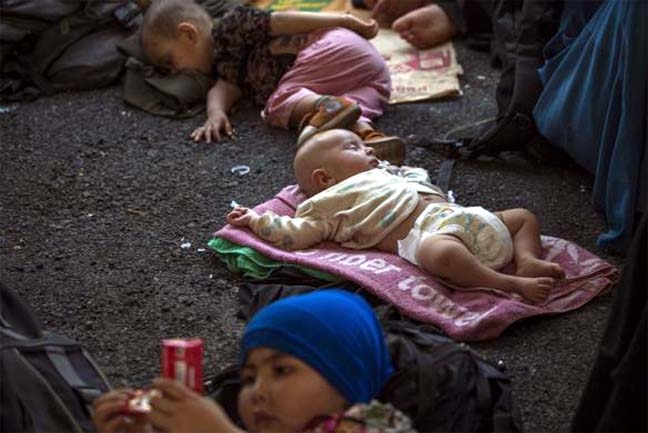
Reuters, Thailand :
About 200 people rescued by police from a human trafficking camp in southern Thailand are suspected Uighur Muslims from China’s troubled far-western region of Xinjiang, Thai police sources said on Friday.
The discovery is further evidence that human smugglers in southern Thailand – already a notorious trafficking hub for Rohingya boat people from Myanmar – are exploiting well-oiled networks to transport other nationalities in large numbers, despite an ongoing crackdown by Thai police.
“The human smugglers are expanding their product range,” said Police Major General Thatchai Pitaneelaboot, a US-educated commander who has launched a series of raids on trafficking camps in southern Thailand, including the 200 suspected Uighurs rescued on Wednesday . Two police raids in January freed a total of 636 people. At least 200 of them were Bangladeshis – an “unprecedented” number, said Thatchai.
The rest were Rohingya, mostly stateless Muslims from western Myanmar, where deadly clashes with ethnic Rakhine Buddhists in 2012 killed at least 192 people and left 140,000 homeless. Since then, tens of thousands of Rohingya have fled from Myanmar by boat, many of them coming ashore in southwest Thailand. On December 5, Reuters reported that Rohingya were held hostage in illegal camps hidden near the border with Malaysia until relatives paid ransoms to release them. Some were beaten and killed.
The Reuters investigation also found that Thai authorities had adopted a covert policy to push Rohingya detainees out to sea – and back into the hands of human traffickers – because police immigration detention camps were overwhelmed with new arrivals.
The suspected Uighurs were discovered on Wednesday night in a hilly rubber plantation in an area where the Reuters report identified at least three camps used by Rohingya smugglers last year. The camp guards fled as police approached, Thatchai said.

